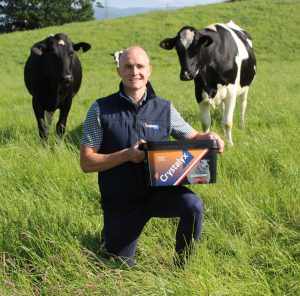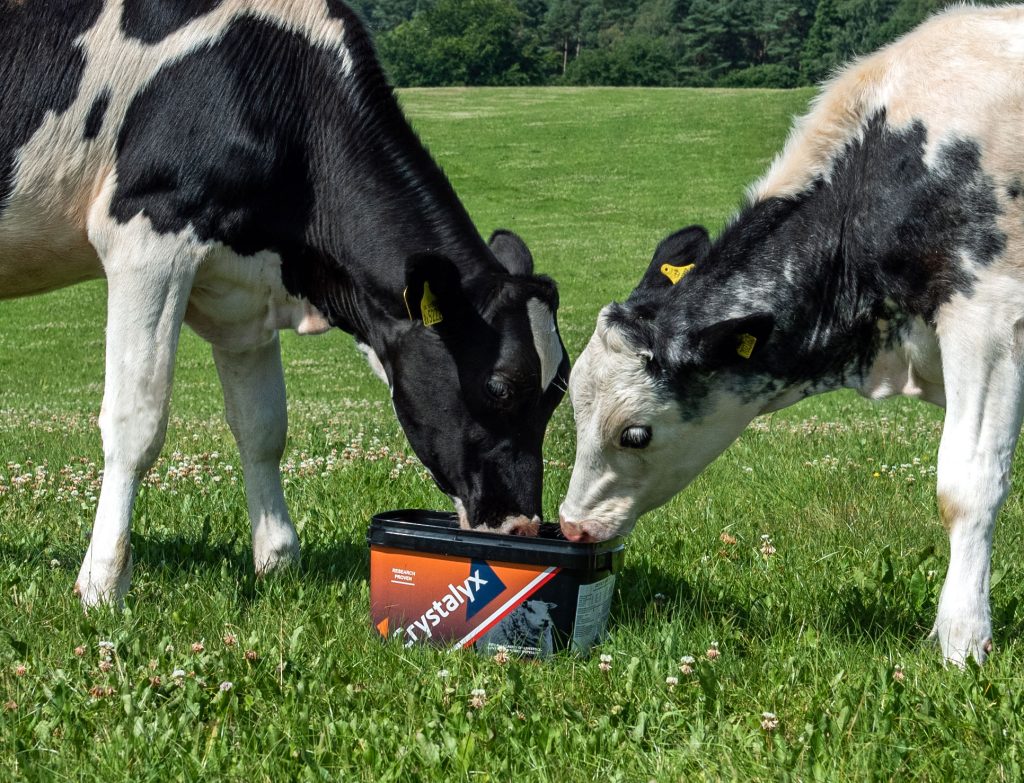In-calf heifers and dried-off dairy cows are more predisposed to summer mastitis during warmer months when fly populations are high.
According to AHDB, each case of bovine mastitis can cost £250 – £300 (€300 – €360), depending on the severity. By implementing a summer mastitis control plan, research has shown that farmers can experience a 36% reduction in mastitis.
Summer mastitis causes and symptoms
Summer mastitis bacteria-carrying flies live in bushes and trees and are particularly active when conditions are mild, damp, humid and still. Problem fields therefore tend to be next to woods or high hedges.
Spotting summer mastitis can be more difficult, as the animals concerned are not running through the parlour on the daily. Instead, we need to look out for for early signs by regularly shepherding/checking stock. This is important in preventing critical clinical symptoms from progressing.
Summer mastitis will start out with gradual udder and/or teat swelling. Often with flies clustering around the effected area, and the cow licking/kicking the area also. As the infection worsens, the animal can then become sick, showing fever, stiffness, depression, and a lack of appetite.
In any case, veterinary attention is essential to mitigate the risk of abortion, quarter damage, and calf weakness/mortality.
Summer mastitis control plan
As is always the case, prevention is better than cure. Here’s some methods of reducing the risk of summer mastitis from occurring:
- Implement effective dry cow therapy in susceptible animals
- Remove cows from susceptible fields when conditions allow for fly activity
- Regularly shepherd and carefully inspect dry stock out at grass
- Choose an effective repellent, such as the Crystalyx Garlyx feed block
Luke Morgan, Account Manager for Ireland, comments

“Crystalyx Garlyx represents a natural way of protecting cattle and sheep from biting insects.
“The product has also been specifically formulated to maximise animal performance by stimulating forage intake and digestion.”
“The natural, high-sulphur compounds in garlic act as an insect repellent, which ward off flies and other biting insects.
“The tubs and buckets can be conveniently put out in fields and paddocks with stock throughout the grazing season.”
Preventing livestock stress
Flies don’t just increase the prevalence of summer mastitis, they can also cause livestock stress and/or irritation. This can seriously impact on grazing and production.
By offering Crystalyx Garlyx to cattle (and sheep) when flies and biting insects are prevalent, their skin becomes less attractive and they are less likely to be bothered by the flies/insects.
Crystalyx Garlyx also contains a full complement of vitamins, minerals and trace elements to balance any deficiencies in summer grass. The high levels of zinc contained in the Crystalyx Garlyx also helps to maintain skin integrity and strength to further guard against biting insects.
SPEAK TO YOUR LOCAL CRYSTALYX ADVISOR

